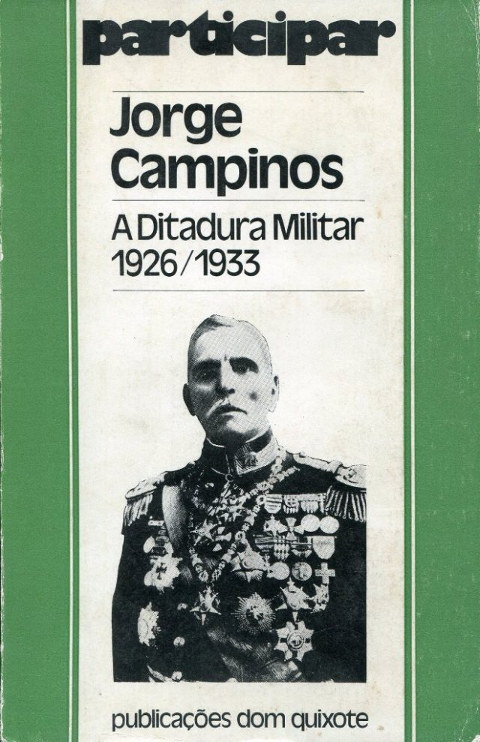

EARLIER today we (re)published SUEPO's translation of an article that claims António Campinos may be the next President of the EPO. This fits numerous predictions made here last year, based on informed circles. Inside and outside the EPO many people expect Campinos to receive the 'crown', along with a pay rise.
"Inside and outside the EPO many people expect Campinos to receive the 'crown', along with a pay rise."Campinos is described as Portuguese, but he was born in France. He is believed to be a French national. Looking at public information about the past of the Campinos family, one of our readers prepared the following report. The main riddle/question was, does Mr. Campinos have dual citizenship (Portuguese and French)?
 It's not uncommon for those in the upper echelons of international organisations like the EPO to have dual citizenship.
It's not uncommon for those in the upper echelons of international organisations like the EPO to have dual citizenship.
For example Pantelis "Paul" Kyriakides who served as a Vice-President of the EPO under Ingo Kober and Alain Pompidou is known to have dual British and Cypriot citizenship. Kyriakides was was born in Kyrenia, Cyprus, in 1949, grew up in Cyprus and completed his education in Britain. He joined the UK Patent Office in 1976 and was transferred to the EPO in 1981. After being Principal Director in the technical fields of mechanics and electricity/physics, he was appointed Vice-President of the EPO at the end of 1999. Due to his British citizenship he had to resign as Vice-President when Alison Brimelow took over because EPO Vice-Presidents are excluded from having the same nationality as the President.
“During his period in exile Jorge Campinos was the international secretary of the Portuguese Socialist Action and a co-founder of the Portuguese Socialist Party in 1973.”
--AnonymousAnother example is the current Vice-President of DG4, Željko Topić, who is rumoured to have dual Croatian and Bosnian citizenship because he was born and educated in Banja Luka (Bosnia and Herzegovina).
Getting back to António Campinos of the EUIPO, the following is known for certain:
António-Serge de Pinho Campinos, to give him his full name, was born in Poitiers (France) on 24 October 1968. This is confirmed by the record of his appointment as President of the EUIPO (formerly OHIM) published in the Official Journal of the EU in June 2010.
His father was Joaquim Jorge de Pinho Campinos (usually shortened to Jorge Campinos) who was a prominent figure in Portuguese politics from the 1960's until his untimely death in a motor accident in 1993. [photo at the top/left is of António Campinos's father, Jorge]
 In the course of his political activities as a student, Campinos Senior came into conflict with the Salazar dictatorship in Portugal and was forced into political exile.
In the course of his political activities as a student, Campinos Senior came into conflict with the Salazar dictatorship in Portugal and was forced into political exile.
He lived in France for 14 years until his return to Portugal in 1974 following the "Carnation Revolution".
During his period in exile Jorge Campinos was the international secretary of the Portuguese Socialist Action and a co-founder of the Portuguese Socialist Party in 1973.
The following translation of a Portuguese biographical note gives more information about Campinos Senior. Original Portuguese is at casacomum.org.
Jorge Campinos
Joaquim Jorge de Pinho Campinos was born in Lobito (Angola) on June 30, 1937.
After completing his secondary studies at the Liceu de Sá da Bandeira in Angola, he joined the Faculty of Law of Lisbon. He was leader of the student organisation "Home of the Students of the Empire" (1959-1960) and a militant member of the MPLA (People's Movement for the Liberation of Angola).
He was exiled in Morocco and then in Poitiers, where he completed his law and political science courses.
As Doctor and Professor of Law in Poitiers, he also coordinated various courses of comparative political systems and Public International Law, at the universities of Tours, Limoges and the Sorbonne. He was also director of the International Center and International Relations at The Hague Academy of International Law.
He joined the Portuguese Socialist Action and became one of the founders of the Socialist Party (PS) in Germany in 1973.
Following the 25 of April of 1974, having been in constant contact with Mário Soares, he returned to Portugal.
In the PS, besides being a member of the National Commission and the Political Commission, he was a member of the National Secretariat and the Secretariat of the Organization.
He was Secretary of State for Foreign Affairs in the Second, Third and Fourth Provisional Governments, Minister of Foreign Trade in the Sixth Provisional Government, and Minister without portfolio in the First Constitutional Government.
He joined the Portuguese delegation in the negotiations with PAIGC, with a view to recognizing the independence of Guinea and Sao Tome and Principe. [Note: PAIGC = African Party for the Independence of Guinea and Cape Verde]
He was a Member of the Constituent Assembly, the Assembly of the Republic and the European Parliament (1987). He was also Judge Counselor of the Constitutional Court (1982-1985), Member of the European Commission on Human Rights in the Council of Europe (1984-1990) and Director of the Legal Service of the European Parliament.
He died in a car accident in Mozambique in 1993.
“Jorge Campinos was married to Maryvonne Campinos who is the mother of António-Serge de Pinho Campinos.”
--AnonymousIt is reported that she was a student of the controversial French philosopher, resistance fighter and communist author, Roger Garaudy (1913 - 2012).
Garaudy taught at the University of Poitiers from 1969-1972 during the time that Jorge Campinos was based there.
All of this makes it plausible that Campinos Junior could have dual Portuguese-French citizenship. But so far there is no definite proof of this.
“Being born in France would presumably entitle him to French citizenship.”
--AnonymousIn an official resume from 2014 Antonio Campinos claims to be "a native of Portugal". However, this does not tally with the information published in the Official Journal of the EU which shows that he was actually born in Poitiers in France.
Being born in France would presumably entitle him to French citizenship. He may even have acquired this automatically if his mother was also born in France.
But it's important to emphasise that this is just speculation because there is no documented proof that he does have French citizenship. ⬆